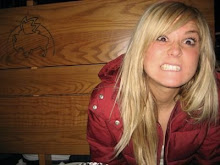Abstract:
Do the voluntary activities of youth increase political engagement in adulthood? Political part is typically characterized by inertia: reproduced within families, highly correlated with social class, and largely stable after the onset of adulthood. This research illustrates an element of political socialization that occurs just before the transition into full citizenship that mimics adult civic life, and that can be available regardless of family advantage. The authors use two longitudinal national data sets to identify the kinds of voluntary associations that encourage members to be more politically active later in life. They find that general involvement in youth voluntary associations concerning community service, representation, speaking in public forums, and generating a communal identity most encourage future political participation. The authors find these effects net of self-selection and causal factors traditionally characterized in political socialization research. The influence of young voluntary associations on future political activity is nontrivial and has implications for both democratic education and election outcomes.
The authors attempt to bridge the two camps currently concerned with political socialization, into a "nuanced explanation of political socialization" (402). The two camps are:
(1) social reproduction (parents vote, you vote; what more, high socioeconomic kids more likely than those from working class families). This view in its more deterministic nature is best exemplified by Bourdieu (1984, 1977).
(2) social learning (involvement in voluntary associations develop capacities necessary and leading to political part. see Verba 1972). Finds there to be social learning to loosen the class determinism of political participation (403). This includes variables such as political talk in the home, as well as schools etc.
___
The US is a nation of joiners (Tocqueville 1848).
Yet this tendency is found to be on the decline (Putnam 2000 etc.). Thus understanding how citizens become joiners (which leads to political activity, and ideally, representation) is important.
Lit review of predictors of political participation:
The telltale predictor of voting, is past vote (thus voting is habitual). This indicates that the initial activation of political awareness is increasingly important to continued activity--and this initial activation is usually in one's youth.
Most work on membership (aka what joiners join) focuses on adults; and those that focus on kids do us a disservice by characterizing membership in groups too generally (i.e. "sports" or "clubs"). The authors, here, attempt to break about the nuances of group membership to fully understand the impact of particular types of groups, joined as children, and their impact on later adult participation.
Types of groups (*some more political salient than others):
school and community groups
service oriented groups (NHS, debate, frmama, religious organizations)
book clubs, computer clubs (do not predict participation)
sports clubs
"These associations retain an effect because the activities being performed within these organizations (or fields) are collaborative endeavors with trans-individual tasks that spread experiences and resources somewhat equitably across members. Moreover, through these activities youth develop the capacities, motives, and relationships that encourage future political activity..." (405).
*those which are mre politically salient allow kids to acquire skills that have direct applications to adult civic activities (404). Furthermore, those which are more communal (reject competition) are more likely to lead to political skills aquisition.
The authors then combine the importance of the two camps when they recognize that certain group membership enhances skills necessary, in light of what Bourdieu finds (that those childnre with higher class backgrounds will be more likely to be in clubs)--"an indirect effect of social background" (404).
In effect, our empirical quetion concerning political socialization via youth orgs s threefold:
(1) whether youth voluntary associations generate furnre political part by filling up with elites who will be political engaged anyway (Bourdieu),
(2) whether the net of that, thse membrships activate practices and resources that originate in a different field like the family,
(3) whether, net of both priors, these affiliations generate new moives, capacities, and symbolic capitial salient to adult political part.
DATA AND MEASURES:
(1) NELS (national education longitudinal study) 1988-2000
--a stratified random sample of 8th graders followed over a span of 12 years; given surveys.
N=10,827
(2) NLS of Add Health (National longitudinal study of adolescent health) 2003
--Wave 1 occurred in 1994-1995, N=14,738 (7th through 12th graders interviewed in their home); in 2001-2002 around 11,015 of those from Wave 1 are surveyed in their homes, again
ind var: extracurricular experiences (as youth)
(1) school (39 total)
(2) non-school (14 total)*combined data set
(3) non involvement
Control vars:
social background
parenting practices
student-peer practices (measures of popularity; aims to capture whether or not being friends with others leads to joining, mediating/accounting for membership effects)
students own motives (questions about the future)
school characteristics
dep var: adult pol. part. (5 components)
(1) Register--are you?
(2) Vote--do you?
(3) CIvic service--do you volunteer?
(4) Campaign involvement--are you involved?
(5) Political membership--are you a member?
FINDINGS:
(1) yes, the social reproduction of unequal politivcal part. is occurring
(2) it indeed leads to familial response---increased political talk/contact between parents and child, and
(3) once students ARE in politically salient orgs, they learn the skills necessary and route to increased political part as an adult is revealed. w00t.
Page 412...
Subscribe to:
Post Comments (Atom)

No comments:
Post a Comment